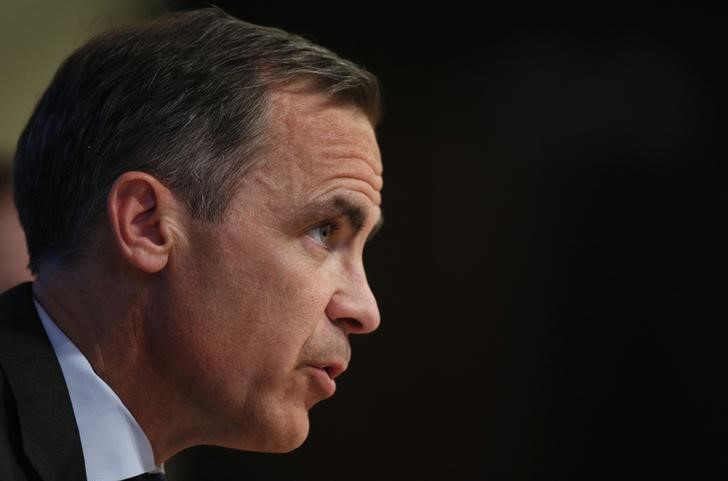By Leika Kihara and Stanley White
TOKYO (Reuters) - Financial Stability Board Chairman Mark Carney warned on Thursday that the challenges global policymakers face in a low nominal-growth environment cannot be solved by ultra-loose monetary policy alone.
Carney, who is also Bank of England governor, said the biggest vulnerability the global economy faces is its low nominal growth and low-interest rate environment that creates great challenges for companies, sovereigns, bank profitability and policymakers.
"There is a clear recognition that the challenges of a low nominal growth environment will not be solved by monetary policy alone and that developments over the course of the past several years globally are serving to reinforce those realities," Carney said in a news conference in Tokyo after an FSB plenary session.
He warned that if a low nominal-growth environment persists for years, it could undo some of the efforts made by policymakers and banks in rebuilding a sustaining and resilient financial system.
"In the end, if you don't have profitable financial institutions then gradually that resilience is undercut. The core lessons of this doesn't go to monetary policy or financial stability policy. But it does go to structural policies needed to enhance productivity alongside efforts to reflate our economies," he said.
Carney sidestepped the question from a reporter on what he thought about the Bank of Japan's decision in January to adopt a negative interest rate policy.
The Group of 20 central bank governors had "very productive discussions" at their meeting in Shanghai in February on how best to design monetary policy frameworks to maximise the impact on domestic economies, he said.

In a speech in February prepared for delivery to the G20 meeting, Carney warned that moves by central banks to cut rates below zero risked creating a "beggar-thy-neighbour" environment which could leave the global economy trapped in low growth.